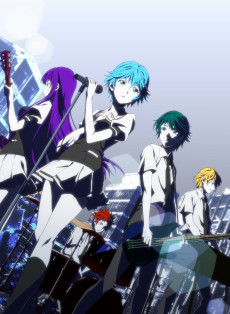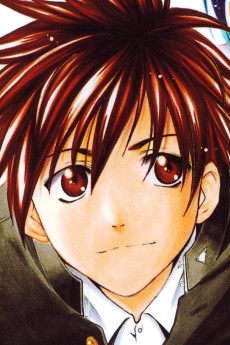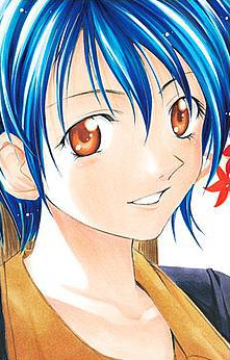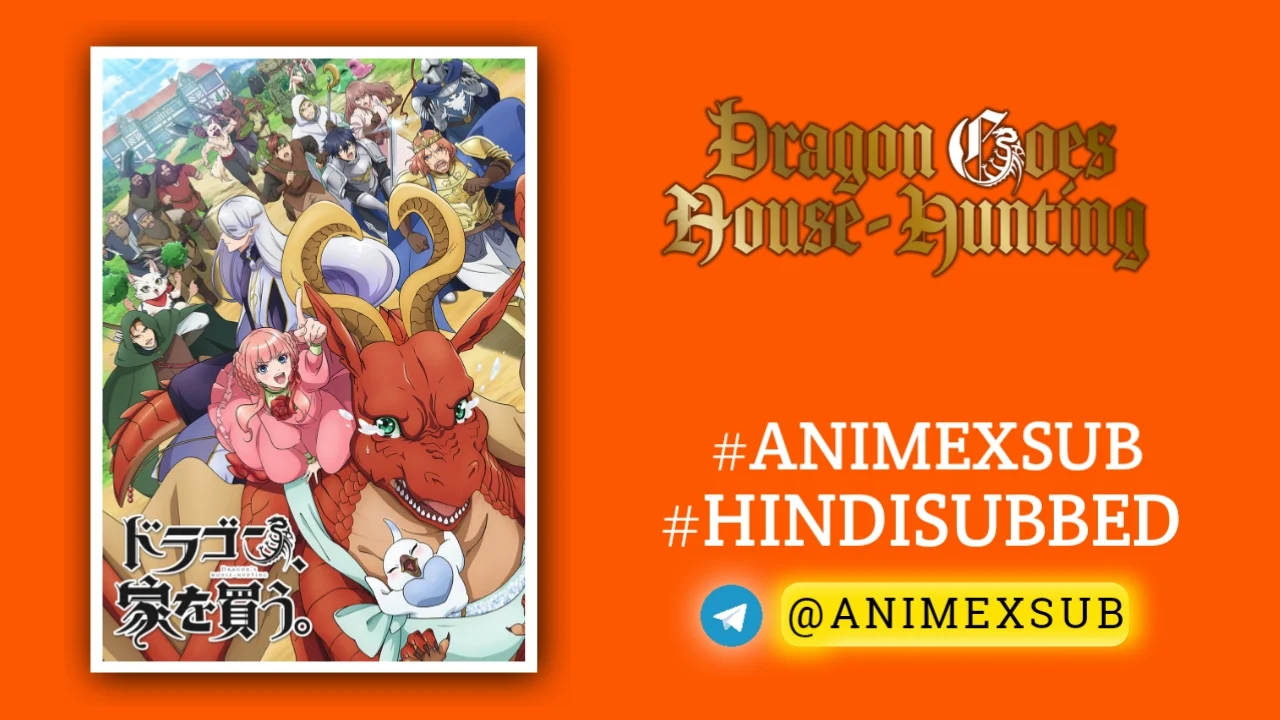
Fuuka Hindi Subbed [12/12] {Complete}

Fuuka
FuukaSynopsis
The story centers on a young man named Yuu Haruna who has just switched schools. He's a bit shy, and he's constantly glued to his smartphone so he can check Twitter. He meets a girl named Fuuka Akitsuki, who doesn't even have a cell phone, is free-spirited, and naturally fascinates others. Yuu recently has been getting back in touch via Twitter with his childhood friend Koyuki Hinashi, who is now a popular singer. One day Yuu invites Fuuka to one of Koyuki's concerts, and there the three meet for the first time. The story follows the love triangle between a love that started through electronics, and a love that didn't start through electronics. (Source: Anime News Network)
Watch Trailer
Characters
Fuuka Season 1: A Symphony of Heart and Discord
Fuuka (2017), a 12-episode anime adapted from Kouji Seo’s manga and produced by Studio Diomedéa, is a curious blend of music, romance, and coming-of-age drama. Set against the backdrop of modern Tokyo, it follows Yuu Haruna, a reserved teenager navigating a new city, and his encounter with Fuuka Akitsuki, a vibrant girl with a passion for music. The series charts their journey as they form a band, wrestle with personal insecurities, and grapple with complex relationships. While Fuuka ambitiously weaves themes of purpose, connection, and artistic expression, its execution is a mixed melody of brilliance and dissonance, making it a compelling yet flawed exploration of youth.
Narrative: A Rushed Rhythm with Emotional Chords
At its core, Fuuka Season 1 is a story about finding one’s place in the world through music and relationships. The narrative follows Yuu, a socially awkward teen obsessed with Twitter, who stumbles into Fuuka, a free-spirited girl with a natural talent for singing. Their chance meeting sparks the formation of a band, The Fallen Moon, and sets the stage for a journey of self-discovery, friendship, and romance. The show’s premise is rooted in familiar anime tropes—misunderstandings, love triangles, and the pursuit of dreams—but it attempts to distinguish itself through its focus on music as a metaphor for personal growth.
The pacing, however, is a significant stumbling block. The story races through key developments, compressing emotional beats and character arcs into a 12-episode run. This rapid tempo, noted by critics, often undermines the weight of pivotal moments. For instance, conflicts that could span multiple episodes in similar anime are resolved within minutes, creating a sense of whiplash. Yet, this brisk pace also lends Fuuka a unique energy, reflecting the impulsive, chaotic nature of youth. The narrative’s refusal to linger on misunderstandings can feel refreshing, even if it sacrifices depth for momentum.
What sets Fuuka apart from other music or romance anime is its willingness to portray the messiness of teenage emotions. Unlike idealized depictions of high school love, the relationships here are fraught with confusion, miscommunication, and unspoken feelings. The show captures the awkwardness of navigating crushes and friendships without clear answers, making it relatable for viewers who remember the turbulence of adolescence. However, the narrative’s divergence from the manga—particularly its omission of a major plot twist—alters the story’s emotional stakes. While this choice creates a more optimistic tone, it leaves some viewers, especially manga readers, feeling that the anime lacks the gut-punch intensity of its source material.
Characters: A Band of Contrasts
Fuuka’s characters are both its greatest strength and its most inconsistent element. Yuu Haruna, the protagonist, is a shy, Twitter-obsessed loner whose blandness can frustrate viewers. His lack of distinct motivations, beyond being swept along by Fuuka’s energy, makes him a passive figure in his own story. Yet, this passivity mirrors the aimlessness of many teenagers, and Yuu’s gradual growth as he steps out of his digital cocoon is quietly compelling.
Fuuka Akitsuki, the titular character, is the heart of the series. Her enthusiasm for music and her refusal to conform to expectations (like following in her father’s athletic footsteps) make her a magnetic presence. However, her impulsiveness and inconsistent behavior—such as her extreme reactions to perceived slights followed by sudden warmth—can feel jarring. This inconsistency, while sometimes criticized as poor writing, also reflects her as a teenager still figuring herself out, torn between passion and insecurity.
The supporting cast, including bandmates like the confident Mikasa Makoto and the prodigy guitarist Iwami Sara, adds variety but struggles with underdevelopment. The show introduces intriguing backstories—such as Mikasa’s strained family dynamics—but rarely explores them fully due to time constraints. The love triangle involving Yuu, Fuuka, and childhood friend Koyuki Hinashi, a pop idol, adds drama but often feels forced, with Koyuki’s arc resolved in a way that lacks emotional payoff. Despite these flaws, the characters’ interactions carry an authenticity that resonates, particularly in moments of camaraderie during band rehearsals or quiet conversations about their dreams.
Themes: Music as a Mirror for Purpose
Fuuka uses music as a lens to explore themes of purpose, identity, and connection. The formation of The Fallen Moon is not just a plot device but a metaphor for the characters’ search for meaning. Each member joins the band to escape personal struggles—whether it’s Yuu’s social isolation or Fuuka’s pressure to live up to her father’s legacy. The anime suggests that art, particularly music, can be a transformative force, helping individuals find direction in a world that often feels overwhelming.
The series also touches on the tension between individuality and societal expectations. Fuuka’s rejection of her father’s athletic path in favor of music reflects a broader struggle to carve out one’s identity. Similarly, Yuu’s journey from a phone-obsessed introvert to a bassist performing in front of a crowd symbolizes the courage to step into the real world. These themes are universal, but the show’s rushed pacing sometimes reduces them to surface-level explorations.
Another subtle theme is the role of technology in modern relationships. Yuu’s reliance on Twitter highlights the paradox of being hyper-connected online yet disconnected in real life. Fuuka, who shuns cell phones and listens to CDs, represents a counterpoint—a reminder to live in the moment. This contrast is never fully explored, but it adds a layer of cultural relevance, especially for a 2017 audience grappling with the rise of social media.
Technical Aspects: A Visual and Auditory Mixed Bag
Visually, Fuuka is a standout, with vibrant colors and soft character designs that evoke warmth and emotion. The bright blue of Fuuka’s hair and the vivid backgrounds, especially during beach or performance scenes, create a lively aesthetic that complements the show’s youthful energy. However, the animation quality is inconsistent. Some scenes, like the band’s performances, are fluid and detailed, while others, such as background character movements, suffer from awkward walk cycles or static frames. Critics have noted occasional cinematographic errors, like jarring camera angles or unrealistic character movements, which can break immersion.
The sound design is a highlight, particularly the music. The anime brings the manga’s songs to life, with tracks like “Climber’s High” by the fictional band Hedgehogs capturing the raw energy of alternative rock. The performances by The Fallen Moon, while repetitive at times, convey the thrill of a fledgling band finding its sound. The voice acting (in both Japanese and English dubs) is solid, with Lynn’s portrayal of Fuuka brimming with passion and Aaron Dismuke’s Yuu grounding the character’s understated growth. However, some sound effects, like exaggerated slaps, feel overdone and cartoonish.
Cultural Context and Reception
Fuuka exists in a crowded field of music and romance anime, drawing comparisons to series like K-On! or Your Lie in April. Unlike K-On!’s lighthearted focus on friendship or Your Lie in April’s emotional depth, Fuuka struggles to find its niche. Its blend of genres—slice-of-life, romance, drama, and music—makes it ambitious but also unfocused. The decision to deviate from the manga’s darker plot twist sparked debate among fans. Some appreciated the anime’s lighter tone, while others felt it robbed the story of its emotional weight. Reviews on platforms like MyAnimeList reflect this divide, with scores ranging from enthusiastic 8s to scathing 2s, often citing pacing, character consistency, and the altered storyline as points of contention.
The anime’s connection to Suzuka (2005), a predecessor by the same creator, adds context but isn’t essential for enjoyment. Fuuka’s status as the daughter of Suzuka’s protagonists is a minor detail, making the series accessible to newcomers. However, this link raises questions about the anime’s purpose, as it neither fully continues Suzuka’s story nor stands entirely on its own.
Strengths and Weaknesses
Strengths:
- Emotional Authenticity: Fuuka captures the messy, uncertain nature of teenage emotions, making its relationships feel grounded despite narrative flaws.
- Visual Appeal: The bright, warm art direction enhances the show’s emotional tone, particularly in music and romance scenes.
- Music as a Narrative Device: The band’s formation and performances effectively mirror the characters’ growth, with catchy songs that bring the manga to life.
- Relatable Themes: The focus on finding purpose and navigating identity resonates with a young audience.
Weaknesses:
- Rushed Pacing: The 12-episode format compresses the story, leaving little room for character development or emotional depth.
- Inconsistent Characters: Some characters, particularly Yuu, feel underdeveloped, and their motivations can seem arbitrary.
- Deviation from Source Material: The anime’s lighter tone and omission of a key manga twist alienate fans expecting a faithful adaptation.
- Technical Flaws: Animation errors and inconsistent quality detract from the viewing experience.
Why Fuuka Stands Out (and Where It Falters)
Fuuka Season 1 is a polarizing anime that shines in its quieter moments but struggles under the weight of its ambitions. Its depiction of teenage romance as confusing and imperfect is a refreshing departure from idealized love stories, and its use of music as a metaphor for purpose adds depth. However, the rushed pacing and inconsistent character writing prevent it from reaching the heights of genre heavyweights. For manga readers, the altered storyline may feel like a betrayal, while anime-only viewers might find it a pleasant, if unremarkable, watch.
What makes Fuuka unique is its refusal to fully conform to genre expectations. It’s neither a pure music anime nor a straightforward romance, blending elements in a way that feels both chaotic and authentic. The show’s ability to evoke nostalgia for high school dreams and struggles is its greatest asset, even if it doesn’t always hit the right notes. For viewers who enjoy riffing on flawed but heartfelt stories with friends, Fuuka offers plenty of material for discussion, laughter, and reflection.
Final Thoughts
Fuuka Season 1 is a flawed gem—a symphony that occasionally goes off-key but still carries a melody worth hearing. It’s a show about chasing dreams, finding connection, and embracing the messiness of youth, told through a lens of music and tentative romance. While its rushed pacing and narrative choices hold it back, its emotional core and vibrant visuals make it a worthwhile watch for fans of slice-of-life or music anime willing to overlook its imperfections. For those seeking a deeper experience, the manga offers a more intense journey, but the anime stands as a lighter, standalone take on a story about finding your voice.
Rating: 7/10 – A heartfelt but uneven tale that resonates more with the heart than the head.

















